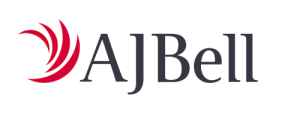During November our NAV return was 3.9% and shareholder returns were 4.3% in comparison to the FTSE All World return of 4.7%.
November saw equity markets rebound, buoyed by growing hopes for soft landings (economic slowdown and disinflation, without recession) and a continuation of the downward trend we have seen in yields. A downside surprise to year-on-year US inflation in October (3.2% vs. 3.3% expected), on top of an upward revision to US GDP in the third quarter (5.2% vs. 5.0% annualised), provided further support. For the US, a soft landing is likely now priced, reinforced by a softening in the labour market data that has been resilient for much of 2023 – October job openings in the US fell to their lowest level since March 2021. The result – a sweeping cross-asset class rally, and the best month for the S&P 500 this year.
Across key regions, Europe (+5.4%) delivered particularly strong performance, reflecting expectations that the European Central Bank has finished raising rates and will switch to cuts in the first half of 2024. Eurozone inflation is nearing target, declining to 2.9% year-on-year in October, with sizable negative base effects from energy detracting 1.1% from headline inflation. US shares also performed well (+4.8%) as yields trended lower from their 2023-peak of c.5.0% in October. UK shares (+2.6%) underperformed versus the global benchmark in November due to limited technology exposure (the best performing sector in November), as well as weaker performance across energy, which constitutes c.15% of the FTSE 100 index. China (-1.8%) was the notable laggard this month, with risks from structural trends including debt deleveraging, financial and data regulations, and geopolitics, continuing to weight on investor sentiment here. Across sectors, technology (+8.4%) was the standout performer in November, with Nvidia (+10.4%) and Microsoft (+7.9%) climbing to fresh peaks on optimistic earnings expectations for the sector in 2024. Indeed, consensus projections for US sales growth next year put technology at the front of the pack, with growth in the region of 7.5% expected for 2024. In contrast, energy (-2.6%) share price performance was weaker in November on lower oil prices (-8.2%), despite the prospect of further production cuts by OPEC+ members by year-end.
MercadoLibre (+25.2%), which is held at a meaningful overweight relative to the benchmark, was the most significant contributor to relative returns in November. As the largest online commerce and payments ecosystem in Latin America, MercadoLibre has sought to capitalise on weaker market penetration in the region from the likes of Amazon and Alibaba. Significant investments in financial software and fulfilment centres have cemented the company’s logistics competitive advantage and facilitated rapid top-line growth. In third-quarter 2023, net revenues rose nearly 70% year-on-year on an FX neutral basis and total payment volume more than doubled, all while maintaining healthy margins of 18.2%. With e-commerce penetration still low in Latin America, and potentially sizable benefits from network effects as it scales, the growth opportunity ahead for MercadoLibre is conceivably significant. The Trust’s underweight position in Exxon Mobil (-6.4%) was also additive to relative returns as oil prices fell in November. Humana (-11.3%), which is held at overweight relative to the benchmark, was the most significant detractor from relative returns this month. Reports that US health insurers Cigna and Humana were in merger talks – a deal that would create an entity worth approximately $140bn – prompted a knee-jerk market reaction amid a tough antitrust environment, particularly for larger transactions in the US healthcare sector. The Trust overweight position in Aptiv (-8.9%), the Irish-American automotive technology supplier, also detracted from relative returns in November as third quarter earnings indicated decelerating demand from electric vehicle manufacturers.
We ended the month at a discount of 10.6%, narrowing at the margin from a discount of 10.8% at the end of October. Net gearing continued to be conservative at 5.9% (with debt at fair value) for month-end, reflecting our view that valuations remain rich across key market segments and earnings expectations remain overly optimistic given interest rates are set to remain higher for longer. Nonetheless, F&C Investment Trust has a tremendous advantage through our corporate structure which makes us well placed to withstand further market volatility, and we remain focused on the long-term opportunities for the benefit of our shareholders.











